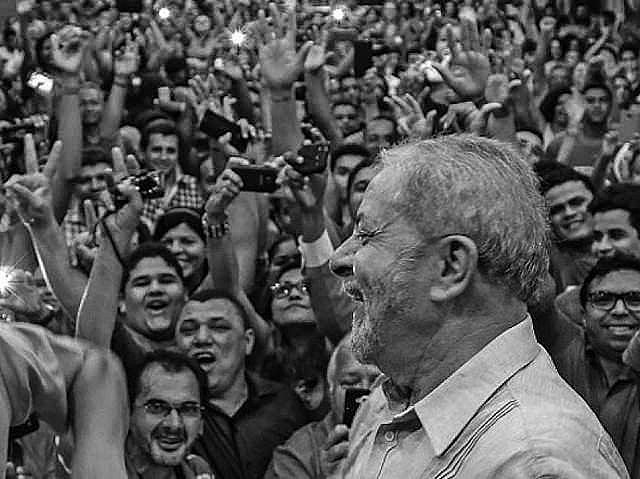A Brazilian court is scheduled to rule Jan. 24th on a legal appeal requested by former President Luiz Inácio Lula da Silva against a corruption conviction that was issued by judge Sergio Moro last July. However, according to various legal experts, the court ruling will not lead to the immediate arrest or disqualification of the former President from the 2018 presidential elections.
This was confirmed in a recent statement issued by the regional court of appeals, TRF-4, which is presiding over the case, stating that the Brazilian justice system offers a range of appeal measures to the former president. "In the event of the conviction being upheld, a stay of execution will be granted regardless of the ruling issued by the TRF4. The final verdict will only be enforced after the appeals process is complete," the statement read.
In the legal hearing, the former President, who is currently leading all presidential opinion polls, will be judged by a panel of three judges. If the court of appeals reaches a unanimous guilty verdict, Lula’s defense team is provided the opportunity to request additional clarification on the ruling through a special appeal process. According to the Brazilian law, defendants are provided a variety of legal mechanisms to postpone the application of a guilty verdict.
However, a recent Supreme Court decision established that defendants could be imprisoned after a second conviction, which could in theory disqualify him from participating in the 2018 Presidential elections. Despite the recent Supreme Court ruling, according to law professor Diogo Rais, at Mackenzie Presbyterian University, even if Lula is convicted for a second time, the former head-of-state can still submit his candidacy for the 2018 Presidential elections.
Legal expert Diogo Rais stated that the practicality of enforcing the court ruling is complicated by various legal technicalities. "The cause of ineligibility and the enforcement of ineligibility are two separate things. The cause of ineligibility is determined by a variety of factors. However, the legal application of ineligibility is something decided by a specific Electoral Court. The enforcement of ineligibility is not automatic. It is influenced by a very specific legal process," Rais sated.
A decision on Lula's fate will come in record time, given that similar cases have taken around a year to be resolved following the initial verdict.
Since his trial first began, attorneys for former President Luiz Inácio Lula have repeatedly argued that their client has been subject to a politically motivated investigation.
"For over three years, Lula has been subject to a politically motivated investigation. No credible evidence of guilt has been produced, and overwhelming proof of his innocence blatantly ignored. This politically motivated judgment attacks Brazil’s rule of law, democracy, and Lula’s basic human rights. It is of immense concern to the Brazilian people and to the international community," his lawyers said in a recent statement.
Elections
According to the Brazilian Front of Jurists for Democracy, the Federal Prosecution Office will be allowed the opportunity to request the Electoral Court to remove Lula da Silva’s name from the electoral race, arguing that he doesn't meet the criterion used for assessing candidates. At which point, the Superior Electoral Court (TSE) would be forced to decide on the matter. During this period, President Lula da Silva would be able to carry out his electoral campaign.
On October 2, 2018, around 144 million Brazilians are expected to go to the ballot and elect a new president, a new Congress, and new state governors.
—
Read this text in Portuguese and Spanish.




